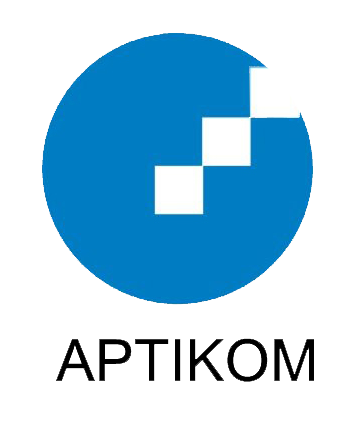Information Management and Information System Analysis to Support the Achievement of University Performance Agreements with the Government
Abstract
State Universities in Indonesia have college performance agreement with Ministry of Education and Culture (MoEC) that consists of performance indicators and target achievements in a year. For assuring the integration, availability, and data validity of performance indicators, good information management with utilized information system is needed by entire working unit. Information management process to support data collection and target achievements on college performance agreement with MoEC in Brawijaya University still has many deficiencies. The process involves many stakeholders because it covers all areas of business in Brawijaya University (UB). Quality Asurance Center in UB as the unit that collects and processes the data of target achievements complained about data collection that takes a long time and it is often incomplete. The faculties, study programs, and other units experience the unavailability of most data and target performance indicators on information system that is used as reference for implementing business processes. The problem responded lightly by Information and Communication Technology Unit in Brawijaya University with consideration that Information System used is in accordance with the needs of the academic community. On the other hand, the responses about the problem from the lecturers, staff, and students are different. This research tries to explore and evaluate the problem and formulate the steps of transformations to refine the situation by using Soft Systems Methodology (SSM) with some additional Root Cause Analysis (RCA) stages. The major contribution of the research is giving the insights about the problem thoroughly comprising various perspective of stakeholders, transforming the refinement of the situation presented in conceptual model, and the stakeholders’ assessment of the conceptual model. This research also visualizes the implementation of RCA to dig up more perspective of the stakeholders and helps identifying the activities to construct conceptual model.
Downloads
References
Checkland, P.B. 1989. “Soft Systems Methodology”. Human Systems Management (8), pp. 273-289.
Checkland, P. 2000. “Systems Thinking, Systems Practice: Includes a 30-Year Retrospective”. The Journal of the Operational Research Society (51:5), pp. 11-58 (doi.org/10.2307/254200).
Connell, N. A. D. 2001. “Evaluating soft OR: Some reflections on an apparently ‘unsuccessful’ implementation using a soft systems methodology (SSM) based approach”. Journal of the Operational Research Society, (52:2), pp.150–160 (doi.org/10.1057/palgrave.jors.2601054).
Hanafizadeh, P., & Aliehyaei, R. 2011. “The Application of Fuzzy Cognitive Map in Soft System Methodology”. Systemic Practice and Action Research (24:4), pp.325–354 (doi.org/10.1007/s11213-011-9190-z).
Hardman, J., & Caceres, A. P. 2011. “A Soft Systems Methodology (SSM) Based Framework for Evaluating Managed Learning Environments”. Systemic Practice and Action Research (24:2), pp. 165–185 (doi.org/10.1007/s11213-010-9182-4).
Kementerian Riset, Teknologi dan Pendidikan Tinggi (Kemenristekdikti). 2016. “Peraturan Menteri Riset, Teknologi, dan Pendidikan Tinggi Republik Indonesia Nomor 51 Tahun 2016”. Kemenristekdikti, pp. 1–58 (http://itjen.ristekdikti.go.id/wp-content/uploads/2015/11/SALINAN-PERMENRISTEKDIKTI-NOMOR-51-TAHUN-2016-TENTANG-SAKIP.pdf).
Kreher H. 1994. “Some recurring themes in using SSM”. Journal of the Operational Research Society (45), pp. 1293–1303 (doi.org/10.1057/jors.1994.202).
Ledington P and Donaldson J. 1997. “Soft OR and management practice: a study of the adoption and use of Soft Systems Methodology”. Journal of the Operational Research Society (48), pp. 229–240 (doi.org/10.1057/palgrave.jors.2600350).
Mehregan, M. R., Hosseinzadeh, M., & Kazemi, A. 2012. “An application of Soft System Methodology”. Procedia - Social and Behavioral Sciences (41), pp. 426–433 (doi.org/10.1016/j.sbspro.2012.04.051)
Mingers, J., & Sarah, T. 1992. “The use of soft systems methodology in practice”. Journal of the Operational Research Society (43:4), pp. 321–332 (doi.org/10.1057/jors.1992.47).
Okes, Duke. 2019. Root cause analysis: the core of problem solving and corrective action, Second Edition. Milwauke, USA: ASQ Quality Press.
Peppard, Joe dan Ward, John. 2016. The Strategic Management of Information Systems: Building A Digital Strategy 4th Edition. England: John Wiley & Sons.
Por, J. 2008. “The use of soft system methodology (SSM) in a serviced-focussed study on the personal tutor’s role”. Nurse Education in Practice (8:5), pp. 335–342 (doi.org/10.1016/j.nepr.2007.12.002).
Rodriguez, J. 2016. “Step 6: part I—root cause analysis. CAPA in the Pharmaceutical and Biotech Industries” (doi.org/10.1016/b978-1-907568-58-9.00009-6).
Ulloa, Ricardo Rodriguez., dan Careces, Alberto Paucar. 2005. “Soft System Dynamics Methodology (SSDM): Combining Soft Systems Methodology (SSM) and System Dynamics (SD)”. Systemic Practice and Action Research (18), pp. 303-334 (doi.org/10.1007/s11213-005-4816-7).
Copyright (c) 2021 Jurnal Sistem Informasi

This work is licensed under a Creative Commons Attribution-ShareAlike 4.0 International License.
Authors who publish with this journal agree to the following terms:
- Authors retain copyright and grant the journal right of first publication with the work simultaneously licensed under a Creative Commons Attribution License that allows others to share the work with an acknowledgement of the work's authorship and initial publication in this journal.
- Authors are able to enter into separate, additional contractual arrangements for the non-exclusive distribution of the journal's published version of the work (e.g., post it to an institutional repository or publish it in a book), with an acknowledgement of its initial publication in this journal.
- Authors are permitted and encouraged to post their work online (e.g., in institutional repositories or on their website) prior to and during the submission process, as it can lead to productive exchanges, as well as earlier and greater citation of published work (See The Effect of Open Access).








